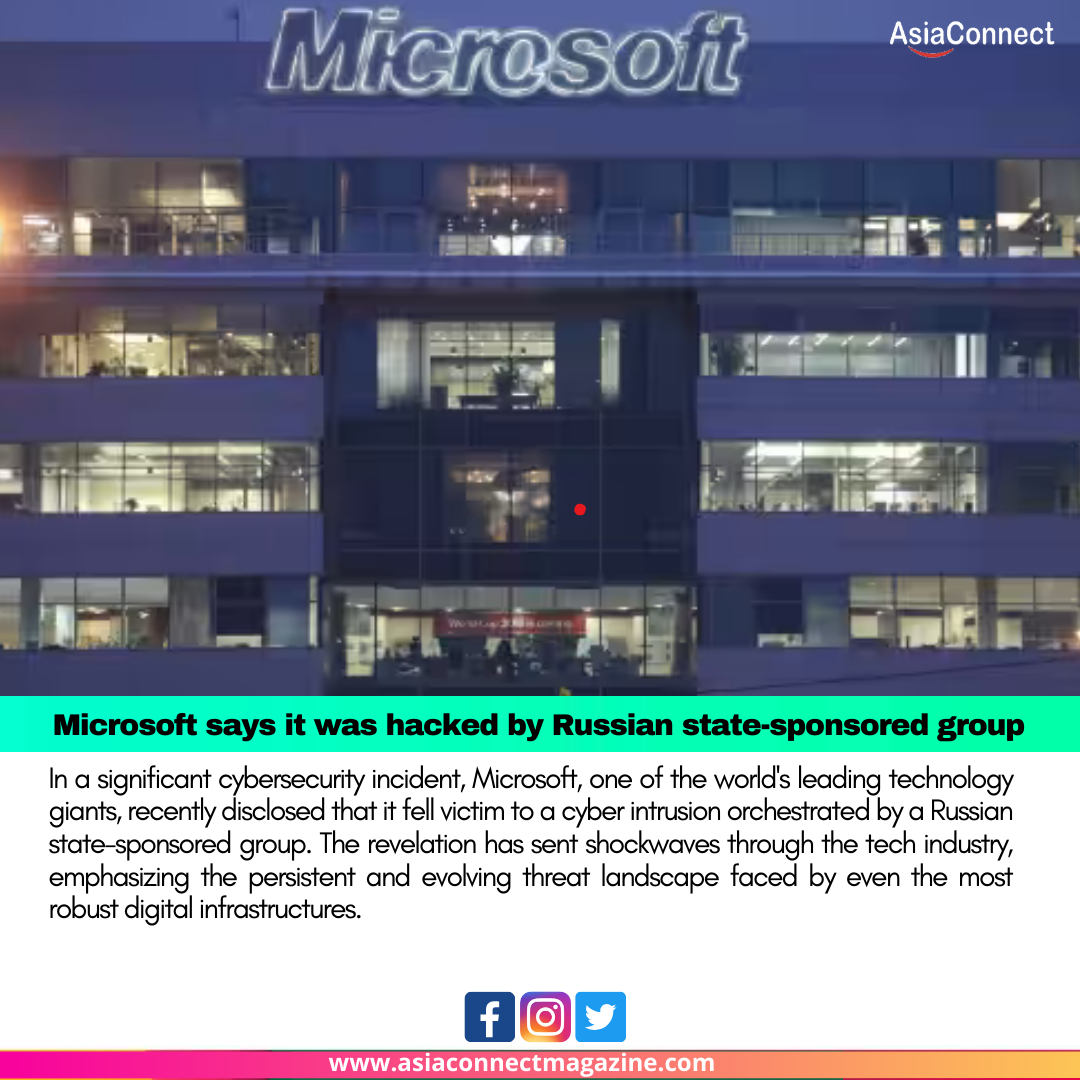In a significant cybersecurity incident, Microsoft, one of the world’s leading technology giants, recently disclosed that it fell victim to a cyber intrusion orchestrated by a Russian state-sponsored group. The revelation has sent shockwaves through the tech industry, emphasizing the persistent and evolving threat landscape faced by even the most robust digital infrastructures.
The cyberattack on Microsoft is purportedly linked to a group known as Nobelium, which has ties to the Russian government. Nobelium is recognized for engaging in sophisticated and targeted cyber-espionage activities, focusing on entities ranging from government organizations to technology companies.
According to Microsoft, the attackers gained access to the company’s systems through the compromise of a customer support agent’s credentials. This initial breach allowed the cybercriminals to view source code repositories, among other sensitive information. While Microsoft assures that there was no impact on its products or services, the incident underscores the potential risks associated with cyber threats.
Microsoft’s prompt response to the breach involved securing the compromised accounts and implementing additional security measures to prevent further unauthorized access. The company also emphasized its commitment to transparency and collaboration, urging the industry and government partners to work together to enhance cybersecurity resilience.
This incident brings to light the evolving nature of cyber threats and the need for organizations, regardless of their size or industry, to remain vigilant in the face of sophisticated adversaries. The fact that even a tech giant like Microsoft can be targeted highlights the indiscriminate nature of cyber-espionage campaigns.
The motives behind state-sponsored cyber intrusions can vary, ranging from intelligence gathering to disrupting critical infrastructure or influencing geopolitical events. In Microsoft’s case, the attackers’ primary goal seems to have been obtaining information rather than causing immediate harm to the company’s operations.
The Microsoft breach also raises questions about the broader implications for global cybersecurity and the urgency of international cooperation in addressing cyber threats. Governments and private sector entities must collaborate to establish robust cybersecurity frameworks and share threat intelligence to mitigate the impact of such attacks.
As the investigation into the incident unfolds, organizations worldwide are revisiting their cybersecurity strategies, emphasizing the importance of employee awareness, multi-factor authentication, and continuous monitoring of network activities. The incident serves as a stark reminder that cybersecurity is a shared responsibility, requiring constant adaptation to stay ahead of evolving threats.
In conclusion, the cyber intrusion on Microsoft by a Russian state-sponsored group highlights the persistent challenges faced by organizations in safeguarding their digital assets. As the world becomes increasingly interconnected, the need for a collective and proactive approach to cybersecurity has never been more apparent. The incident serves as a call to action for governments, industry leaders, and cybersecurity professionals to collaborate in strengthening global defenses against cyber threats.





